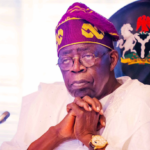
The failure of governors to take advantage of the new Electricity Act 2023 has made states to continue struggling with epileptic power supply, DARE OLAWIN writes
In June 2023, President Bola Tinubu signed the new Electricity Act into law, heeding the calls of Nigerians that the power sector be reformed and removed from the exclusive list. Before the President assented to the bill, governors, both former and incumbent, had called on the Federal Government to give states the power to generate, transmit and distribute electricity within their jurisdiction. This, Nigerians believe, would help in proffering lasting solutions to the country’s power problems. However, seven months after the electricity bill became a law, nothing significant has been done by many of the governors.
The new law replaces the 2005 Electricity and Power Sector Reform Act as it seeks to promote private sector investments in the power sector. It provides for a holistic, integrated resource plan and policy that recognises all sources for the generation, transmission and distribution of electricity, including the integration of renewable energy into Nigeria’s energy mix.
The new act permits the state electricity board or any state authority by whatever appellation, to grant licence for mini-grids and provide the framework for the operation of such licensees. With this, the Federal Government has succeeded in removing electricity from the exclusive list, allowing states and private individuals to invest in the sector.
The 2023 Electricity Act allows constructing, owning, or operating an undertaking for generating electricity not exceeding one megawatt in aggregate at a site, or an undertaking for distribution of electricity with a capacity not exceeding 100 kilowatts in aggregate at a site, or such other capacity as the commission may determine from time to time, without a licence.
The Act mandates electricity-generating companies to generate power from renewable energy sources, purchase power generated from renewable energy or procure any instrument representing renewable energy generation. Though a state can regulate its electricity market by issuing licences to private investors who can operate mini-grids and power plants within the state, the act, however, says that until a state has passed its electricity market laws, the Nigerian Electricity Regulatory Commission will continue to regulate electricity businesses in such states.
With the seeming lackadaisical attitude of the majority of governors, it appears the new Electricity Act may not yield the much-desired result, as the country grapples with epileptic power supply.
For years, Nigerians have continued to languish under a poor deteriorating power sector supervised by the Federal Government. On different occasions, the national power grids kept collapsing, plunging the people into blackouts and affecting businesses. The power grid collapsed 46 times in six years, according to a report by the International Energy Agency.
The IEA said Nigeria had grappled with recurrent power failures, totalling 46 grid collapses between 2017 and 2023. It was disclosed that Nigeria’s grid continued to face issues due to aged infrastructure and vandalism. The deterioration of power infrastructure, it was learnt, increased dependency on backup generators for 40 per cent of electricity consumption in Nigeria.
“Although the country has a total installed capacity of about 13 GW, average available capacity remained around 4.5 GW in 2023 due to a combination of factors such as deteriorating units, poor maintenance and liquidity constraints. Unreliable power supply due to limited grid infrastructure, under-investment and ineffective regulatory frameworks have resulted in an estimated 40 per cent of all the electricity consumed in the country being produced from backup generators,” the IEA declared.
Since December 2023, Nigerians have been lamenting of low power supply. The NERC said the country was able to generate only 3.5 GWh, blaming the low power generation on low gas supply as the majority of the power plants are gas-fired.
When President Tinubu signed the new electricity bill, Nigerians were optimistic that this might mark the beginning of an end to one of their multidimensional poverty sources. It is believed that the adoption of renewable energy sources would reduce the reliance on gas and give the country enough power to supply to aid the growth of small and medium businesses. But, the refusal of state governors to take immediate steps in domesticating the new bill may dash the hopes of many Nigerians.
The repeated collapse of the national electricity grid in Nigeria is an indication that there is a need for many mini-grids in each state and the Federal Capital Territory. This can only be made possible when there are sub-national electricity markets across the federation. Though the new electricity law allows this, it will not materialise unless the states have their independent electricity market laws and state electricity authorities.
NERC prepares
While inaugurating three working groups for the implementation of the new Electricity Act, the NERC Chairman, Sanusi Garba, said the focus of the implementation of the new Electricity Act was the fact that states would take over the responsibilities of making electricity laws for their areas.
“The focus in the implementation of the Electricity Act seems to be about states taking over the responsibilities of making electricity laws for their area,” he said. But it appears the states are not ready yet. So far, only a few states have signed their electricity market laws.
As of the time of filing this report, checks with the Ministry of Power revealed that only five states have signed electricity laws. They are Lagos, Edo, Kaduna, Enugu and Oyo.
Governor Seyi Makinde of Oyo State on February 10 joined the league of governors who have signed the electricity market laws. It is expected that other governors will follow suit as early as possible if they desire to end energy poverty in their states.
Cost may hinder
During the annual power and utilities round-table organised by PricewaterhouseCoopers recently, with the theme ‘The Electricity Act 2023: Powering Nigeria’, Bimbola Banjo, who is the Partner and Finance Advisory Leader, PwC Nigeria, warned governors to exercise caution, saying the adoption of the new act would cost a lot.
“While there is an urgency to adopt the Electricity Act, states must exercise caution and assess their readiness for implementation. The process of adoption will incur significant costs, including engaging legal and commercial advisors, and will require substantial investments in technology, human resources, and the establishment of state-level structures.
“Before proceeding, states should conduct a comprehensive evaluation of their electricity market and network infrastructure, accompanied by detailed technical and commercial feasibility studies. This rigorous assessment will ensure that states are adequately prepared to implement the Electricity Act effectively and reap its full benefits,” Banjo warned.
His comment that the adoption of the new law would eat deep into states’ coffers might have caused some governors to stay action on its implementation. Many states are highly indebted, depending majorly on the allocations they get from the Federal Account Allocation Committee. Data from the Debt Management Office showed that the total debt of the 36 states rose by 13.89 per cent to N7.25tn in 2022 from N6.37tn in the previous year.
It could not be confirmed if any of the states made provisions for the new Act in its 2024 budget.
Experts believe governors should understand that the first step to take is having their independent electricity market laws, as that is the only way to give investors the enabling environment to operate in their domains.
Host communities benefit
On February 9, President Tinubu signed the Electricity Act (Amendment) Bill, 2024, into law. The Electricity Act (Amendment) Bill, 2024, seeks to “address the development and environmental concerns of host communities, and sets aside five per cent of the actual annual operating expenditures of power generating companies from the preceding year for the development of their respective host communities”.
The amendment further provides that the funds allocated for the development of host communities will be received, managed and administered for infrastructure development in the host communities by a reputable trustee/manager to be jointly appointed by the respective GenCos and their host community.
With this amendment, indigenes of a state would enjoy infrastructural development from generating companies that have their power plants sited in those communities. But, the investors may not come if a state does not have any clear-cut modus operandi for GenCos and DisCos.
Minister begs governors
Meanwhile, the Minister of Power, Adebayo Adelabu, has appealed to governors to take advantage of the new Electricity Act to improve electricity supply in Nigeria.
In an interview with our correspondent, Adelabu’s spokesman, Bolaji Tunji, said that the minister recently held a meeting with the states on the need to take advantage of the Act.
Tunji said the Federal Government had done its bits and the minister had continued to urge the governors to be active participants in the provision of electricity in their states.
“They are the ones who know their states very well. Recently, we had a meeting with the Nigeria Governors Forum where some of the commissioners for electricity were in attendance. What we told them was the need for them to make use of the law to be participants in the provision of electricity.
“It is now left for the states to do the needful; the law is open for them to do it. They are closer to the people. They know the needs of the people. They know where electricity is urgently needed. The governors know the rural areas where they can actually go to generate electricity. And if there is any problem, it will quickly get to them so they can get in touch with the DisCo in charge,” Tunji told The PUNCH.
According to Tunji, the minister told the state governors ‘You need to get involved, you need to know who is in charge of power infrastructure in your state’. It is important,”
Similarly, Adelabu reechoed during a meeting with development partners in Abuja, the pivotal role of the states in the power sector. He suggested that the DisCos, as currently constituted, should be unbundled along state lines.
“We need to encourage the states to have their own power generating company, encourage them to establish structures for transmission and distribution. Each state government must also start showing interest in those in charge of distribution in their states.
“While the Federal Government can track generation and transmission, the states should be able to track the distribution companies,” Adelabu advised.





